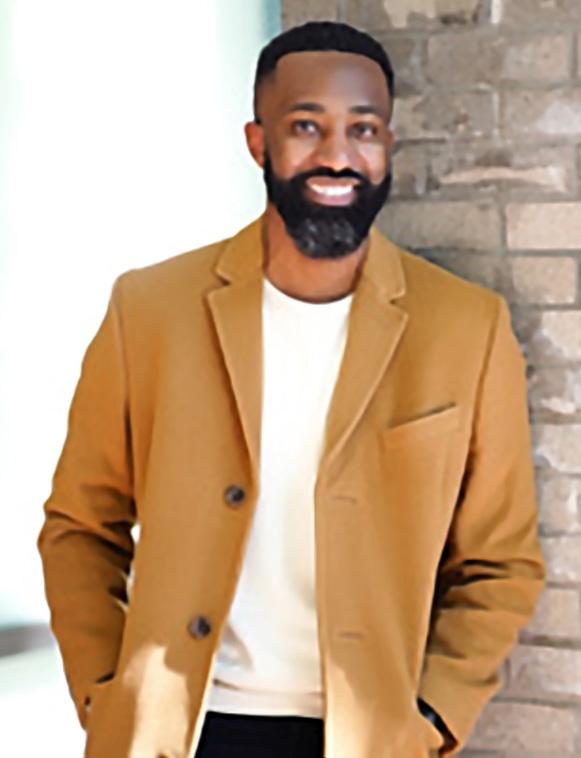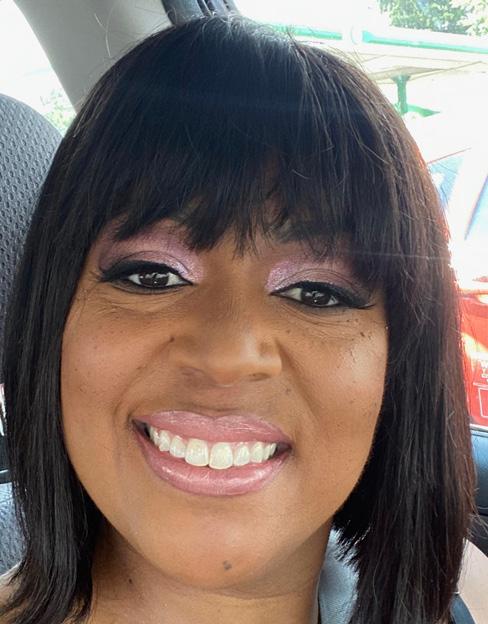
6 minute read
The Transformative Powers of Mentorship
BY JULIA QUINN-SZCESUIL
When Dr. Donté Flanagan, DNP, CRNA was progressing through nursing school and through the doctor of nursing program in nurse anesthesia at Columbia University, he had people to help him with the technical aspects of anesthesia, but other questions were less easy to find answers to. For instance, he had no one to consult with when he experienced microaggressions and discrimination as a Black man in a nursing specialty populated primarily by white nurses.
He couldn’t find the support so he decided to create it for those who followed after him. In creating the Bigger Dreams, Better Tomorrows Foundation, Flanagan has created a wide network where nurses can support each other across the full arc of their careers -- from nursing student to an experienced nurse. The program offers direct mentorship to nursing students and a parallel Faculty Fellowship program helps experienced nurses move into teaching roles.
Sharing Knowledge for Success
“I recognize how difficult it can be without the support,” he says, while noting how life changing it is to have that kind of encouragement. “It’s about helping others succeed, and then someone feels seen. It’s important to know I am giving someone something I didn’t have. When you succeed, others succeed.”
The Bigger Dreams, Better Tomorrows Foundation offers programs on everything from financial literacy to mental health, because a solid foundation of essential skills Dr. Donté Flanagan, DNP, CRNA

enables greater success, says Flanagan. And the space he has created gives students of color and underrepresented students a place where they can safely address sensitive and deeply personal topics such as not being seen and not being heard or experiencing microaggressions or blatant aggression at work.
Stephen Sanchez DNP, SRNA, RN, who was a mentee of Flanagan, says he appreciates hearing advice and guidance from others and he also knows it makes an impact on his life. “It’s an invaluable experience to speak to people who have been through the process,” he says. “You don’t know what it’s like until you go through it.”
Having someone who has gone through a similar experience, of being the only person of color in the OR, for example, gives a mentee the confidence to see it can be done and can help dispel or at least dilute feelings of self doubt. “I’m there to say, I am going to hold you accountable, and I am going to be with you the
Oludayo Akinboboye, nurse anesthesia student, Columbia University
whole way,” says Flanagan. “It creates that positive automatic loop.”
Oludayo Akinboboye, a firstyear nurse anesthesia student at Columbia University, says Flanagan’s mentorship helped him get into nurse anesthesia school after he struggled to do so. “Mentorship is extremely important because you will not know everything you need to know prior to starting whatever journey you embark on,” he says. “Having a mentor who has been through what you are about to go through can help prepare you for what is to come. It’s great to have guidance and build those relationships as you go through your process because at the end of the day, it’s another form of support.”
Navigating the Switch to Academia
And for experienced nurses who want to branch into academia, Flanagan says the potential perils are different but undeniable. “As an educator, you have knowledge and you want to share it and have it understood,” he says. “But as a CRNA, we aren’t taught how to teach effectively. Academia is so different from our clinicals.” Moving from an expert nurse to a professor takes an entirely different skill set-from how to lecture to how to write test questions to working with students. Although some students may give glowing evaluations, for example, plenty more can be brutal, says Flanagan. “It can catch you off guard,” he says, “and people can think they are terrible. It can be demoralizing.”

Dr. Adrienne Cain, DNP, CRNA
To help nurses make the transition, Flanagan’s Faculty Fellowship offers real-life guidance on how to teach well. Dr. Adrienne Cain, DNP, CRNA, said she never had a desire to be a professor, but as a Black woman who is now a DNP of anesthesia, she says she has valuable insight to share. “Black students going through
anesthesia school have to work four times as hard,” she says, noting that she would’ve benefitted greatly from having a professor who understood that struggle. Because of that, she says she’s driven to give back. She loves mentoring students in the OR and is gearing up for an eventual teaching role so the Faculty Fellowship program seemed like an excellent option. “I want to be ready for it,” she says. The program teaches her how to teach so her students will learn better. “It’s about the best way to set students up for success,” she says. “It’s about understanding the different types of learning and how students retain information.”
Diversity Boosts the Entire Profession
Increasing diversity in academia will only help increase diversity in the nursing field. “Students aren’t applying to schools because they don’t see someone at the other side who looks like them,” says Flanagan. Faculty diversity helps all students be better clinicians, says Flanagan, because educators naturally draw on their own stories, enriching the understanding of all students and decreasing bias and judgment. “All around, you get better quality of care and more equity,” he says.
As more supports are put in place, students use the tools to help them navigate a major source of stress. “When I see any students of color coming through, I think let’s help them,” says Cain. Even long after a formal mentor/mentee relationship ends, she says, the connections stay strong because they help. Cain notes, “We all need as much support as we can get.”




